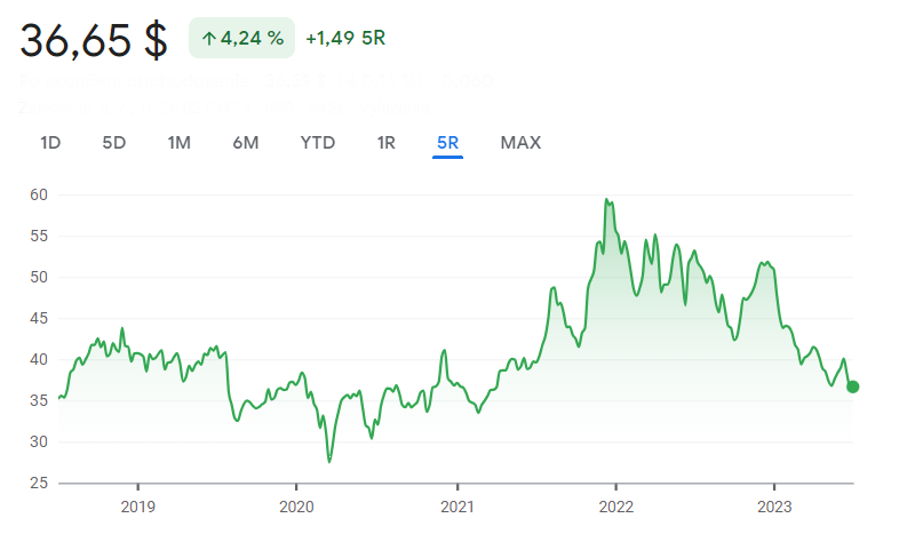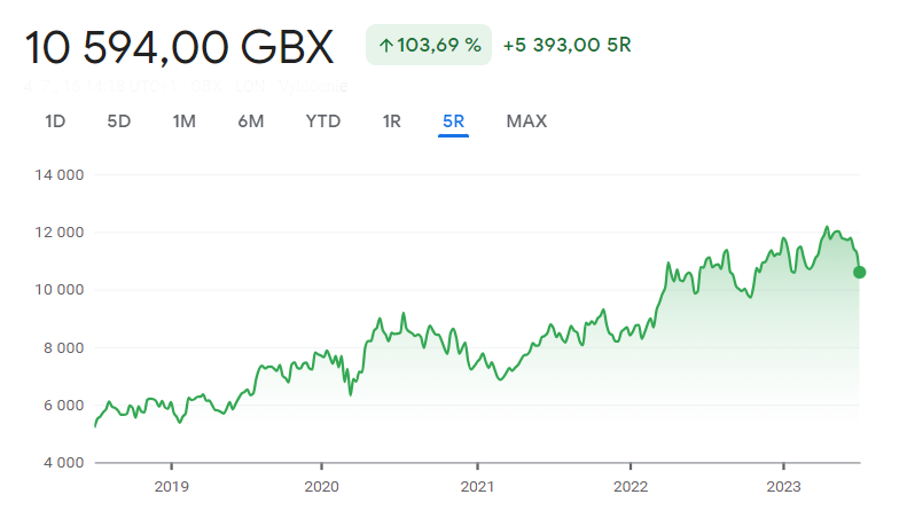Pfizer se ha asociado con Samsung
La empresa farmacéutica estadounidense Pfizer ha firmado dos importantes acuerdos con la tecnológica surcoreana Samsung, por un valor aproximado de 1,2 billones de wones (921,38 millones de dólares), hasta 2029. Como parte de los acuerdos, Samsung aprovechará su experiencia tecnológica para fabricar productos de apoyo contra el cáncer, la inflamación y la inmunología para Pfizer, así como una nueva Planta 4 dentro del complejo de Samsung Biologics en Corea del Sur. Samsung Biologics expresó su entusiasmo por estos acuerdos, destacando la importante expansión de su asociación estratégica con Pfizer. Superó los resultados del año pasado en cuanto a volumen de pedidos, lo que le permite tener unas perspectivas más favorables para el periodo venidero. Además de Pfizer, Samsung Biologics también cuenta en su cartera de socios con Eli Lilly, Kinsale y GlaxoSmithKline.
Las acciones llevan mucho tiempo en verde
Las acciones de Pfizer han bajado un 28,5% este año, pero si se observa su evolución a cinco años, la tendencia del valor de la empresa es ligeramente positiva. Puede que haya tenido su época dorada durante la pandemia de COVID-19, pero aún hoy se la considera un miembro importante de las principales empresas farmacéuticas.

La evolución de las acciones de Pfizer en los últimos cinco años. (Fuente: Google) *
Astra Zeneca se centra en el desarrollo de fármacos contra el cáncer
La farmacéutica británica Astra Zeneca ha dedicado los últimos meses al desarrollo de un innovador medicamento contra el cáncer, el datopotamab deruxtecan. Los resultados han demostrado que, efectivamente, puede ralentizar la progresión de la enfermedad en una fase avanzada. Sin embargo, los analistas señalaron que sus efectos no eran tan pronunciados como se esperaba, a lo que las acciones de la empresa respondieron con una caída del 6%.* El fármaco, desarrollado en colaboración con Daiichi Sankyo, ha prolongado el periodo libre de progresión del cáncer en los pacientes en comparación con la quimioterapia estándar. Astra Zeneca ha adquirido los derechos para colaborar en el fármaco experimental en virtud de un acuerdo con Daiichi por valor de hasta 6.000 millones de dólares ya en 2020. El fármaco forma parte de una clase de conjugados anticuerpo-fármaco (ACD), que consisten en anticuerpos monoclonales que buscan tumores.
La acción ha experimentado una corrección
Astra Zeneca es una de las empresas que ha conseguido mantener un crecimiento constante de sus acciones incluso durante el periodo de pandemia. Este año ha experimentado algunas fluctuaciones, aunque los números rojos no son demasiado elevados y a largo plazo se mantiene en los números verdes. En una conferencia médica aún no desvelada se presentarán nuevos resultados de ensayos relacionados con el desarrollo de fármacos, lo que podría ayudar a elevar el valor de las acciones a su nivel original si se reciben comentarios positivos. Astra Zeneca se ha presentado muchas veces en el pasado como un gran actor en el campo de las empresas farmacéuticas. La reciente corrección de las acciones puede no significar más que una potencial oportunidad de inversión. * [1]

La evolución de la acción de Astra Zeneca en los últimos cinco años. (Fuente: Google) *
Olivia Lacenova, analista principal de Wonderinterest Trading Ltd., es una de las principales analistas del sector.
* Los resultados pasados no garantizan los resultados futuros
[1] Las declaraciones prospectivas se basan en suposiciones y expectativas actuales, que pueden ser inexactas, o en el entorno económico actual, que puede cambiar. Estas afirmaciones no garantizan resultados futuros. Implican riesgos y otras incertidumbres difíciles de predecir. Los resultados pueden diferir materialmente de los expresados o implícitos en las afirmaciones de carácter prospectivo.